第100章 Cleaning Up the Patent-Medicine and Other Evils (1
In 1892 The Ladies' Home Journal announced that it would thereafter accept no advertisements of patent medicines for its pages.It was a pioneer stroke.During the following two years, seven other newspapers and periodicals followed suit.The American people were slaves to self-medication, and the patent-medicine makers had it all their own way.There was little or no legal regulation as to the ingredients in their nostrums; the mails were wide open to their circulars, and the pages of even the most reputable periodicals welcomed their advertisements.The patent-medicine business in the United States ran into the hundreds of millions of dollars annually.The business is still large; then it was enormous.
Into this army of deceit and spurious medicines, The Ladies' Home Journal fired the first gun.Neither the public nor the patent-medicine people paid much attention to the first attacks.But as they grew, and the evidence multiplied, the public began to comment and the nostrum makers began to get uneasy.
The magazine attacked the evil from every angle.It aroused the public by showing the actual contents of some of their pet medicines, or the absolute worthlessness of them.The Editor got the Women's Christian Temperance Union into action against the periodicals for publishing advertisements of medicines containing as high as forty per cent alcohol.He showed that the most confidential letters written by women with private ailments were opened by young clerks of both sexes, laughed at and gossiped over, and that afterward their names and addresses, which they had been told were held in the strictest confidence, were sold to other lines of business for five cents each.He held the religious press up to the scorn of church members for accepting advertisements which the publishers knew and which he proved to be not only fraudulent, but actually harmful.He called the United States Post Office authorities to account for accepting and distributing obscene circular matter.
He cut an advertisement out of a newspaper which ended with the statement:
"Mrs.Pinkham, in her laboratory at Lynn, Massachusetts, is able to do more for the ailing women of America than the family physician.Any woman, therefore, is responsible for her own suffering who will not take the trouble to write to Mrs.Pinkham for advice."Next to this advertisement representing Mrs.Lydia Pinkham as "in her laboratory," Bok simply placed the photograph of Mrs.Pinkham's tombstone in Pine Grove Cemetery, at Lynn, showing that Mrs.Pinkham had passed away twenty-two years before!
It was one of the most effective pieces of copy that the magazine used in the campaign.It told its story with absolute simplicity, but with deadly force.
The proprietors of "Mrs.Winslow's Soothing Syrup" had strenuously denied the presence of morphine in their preparation.Bok simply bought a bottle of the syrup in London, where, under the English Pharmacy Act, the authorities compelled the proprietors of the syrup to affix the following declaration on each bottle: "This preparation, containing, among other valuable ingredients, a small amount of morphine is, in accordance with the Pharmacy Act, hereby labelled 'Poison!'" The magazine published a photograph of the label, and it told its own convincing story.It is only fair to say that the makers of this remedy now publish their formula.
Bok now slipped a cog in his machinery.He published a list of twenty-seven medicines, by name, and told what they contained.One preparation, he said, contained alcohol, opium, and digitalis.He believed he had been extremely careful in this list.He had consulted the highest medical authorities, physicians, and chemists.But in the instance of the one preparation referred to above he was wrong.
The analysis had been furnished by the secretary of the State Board of Health of Massachusetts; a recognized expert, who had taken it from the analysis of a famous German chemist.It was in nearly every standard medical authority, and was accepted by the best medical authorities.Bok accepted these authorities as final.Nevertheless, the analysis and the experts were wrong.A suit for two hundred thousand dollars was brought by the patent-medicine company against The Curtis Publishing Company, and, of course, it was decided in favor of the former.But so strong a public sentiment had been created against the whole business of patent medicines by this time that the jury gave a verdict of only sixteen thousand dollars, with costs, against the magazine.
Undaunted, Bok kept on.He now engaged Mark Sullivan, then a young lawyer in downtown New York, induced him to give up his practice, and bring his legal mind to bear upon the problem.It was the beginning of Sullivan's subsequent journalistic career, and he justified Bok's confidence in him.He exposed the testimonials to patent medicines from senators and congressmen then so widely published, showed how they were obtained by a journalist in Washington who made a business of it.He charged seventy-five dollars for a senator's testimonial, forty dollars for that of a congressman, and accepted no contract for less than five thousand dollars.
Sullivan next exposed the disgraceful violation of the confidence of women by these nostrum vendors in selling their most confidential letters to any one who would buy them.Sullivan himself bought thousands of these letters and names, and then wrote about them in the magazine.
One prominent firm indignantly denied the charge, asserting that whatever others might have done, their names were always held sacred.In answer to this declaration Sullivan published an advertisement of this righteous concern offering fifty thousand of their names for sale.